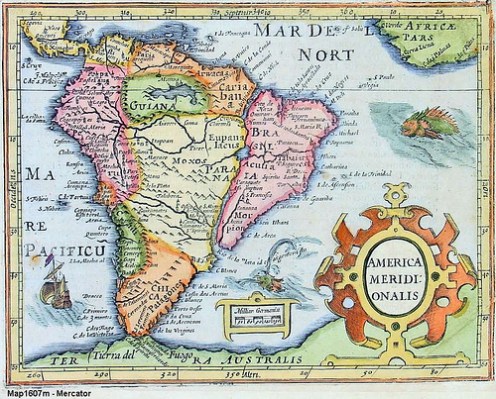As mobile payments company Square looks to online commerce for the next chapter of its growth with Square Market, its rivals in Europe continue to push geographical boundaries into the New World. Today, Germany’s SumUp announced that it will start to offer its payment service in South America, with the initiative fuelled by new, strategic investment from BBVA Ventures, the VC arm of Spanish banking giant BBVA.
SumUp is not yet announcing its first countries but co-founder and CMO Stefan Jeschonnek says that they expect to go live by the end of this year. The amount of the investment is undisclosed but it is part of a bigger investment, more than $20 million, announced originally in May.
SumUp’s news today follows news from iZettle, another one of the mobile payment hopefuls, who has also raised money from a Spanish bank, Santader, and also plans to use the investment to tackle Latin America. It seems that competition among payment startups is matched by that among Spanish conquistador banks.
BBVA’s investment is an extension of SumUp’s funding round announced at the end of May that also included Groupon and American Express. The total of that bigger round has also been left vague: Jeschonnek tells us that it’s in the range of “double-digit euros” and is definitely more than the $20 million+ in funding it raised when it first launched in August 2012.
To date, SumUp’s named investors now include b-to-v Partners, Shortcut Ventures, Tengelmann Ventures and Klaus Hommels, the early Skype, Facebook and Xing investor, in addition to Groupon, AmEx and BBVA. It has also in part been bootstrapped by its founders, which include Daniel Klein, SumUp’s CEO, who was also one of the founders of PayPal competitor MoneyBookers (later rebranded as Skrill).
Jeschonnek says that the iZettle comparison — both picking up Spanish banks as backers, both tackling Latin America — is more coincidence than intentional. “They approached us, and we’ve been having an ongoing discussion,” he says. That included a “deep due dilligence process that took several months that preceded the investment.” BBVA has made other investments into startups that target the small and medium business sector, including participation in a $12.4 million round for business intelligence specialist Radius earlier this year, and a subsequent venture round in May for an undisclosed amount. BBVA, which is active in 30 countries with $630 billion in assets, has a $100 million fund to invest in strategically in startups worldwide.
There are a number of reasons why South America is an attractive target for companies like SumUp, iZettle and Payleven, another mobile payments startup incubated by Rocket Internet and already active in Brazil.
Like its rivals, SumUp targets smaller businesses that may not have been able to take card payments in the past because the fees for doing so were too cost-prohibitive. And it’s most interested in markets where small businesses are big business (in Mexico where iZettle is first launching, for example, 99.8% of merchants are small businesses.) At the same time, SumUp is looking for markets where card penetration and smartphone usage are both still growing rapidly — giving them a chance to pick up customers who have not yet committed to using other solutions. BBVA will be able to tap into this to drive uptake for its own merchant services in this area — and crucially offer products that can be competitive to those of its banking rivals.
In addition to helping fund rollouts in South America, SumUp will also use the funding to expand services in Spain and Portugal, two countries among the 11 where it is already active and still “growing significantly,” although Jeschonnek declines for now to reveal how many active customers or any other metrics.
Indeed, while we wait for more details of what SumUp may roll out in South America, it will also be interesting to see how SumUp develops its offerings closer to home. The company, like Square and others, is also looking to expand beyond dongle-based mobile payment services longer term. That has included the launch of an all-in-one system that includes and iPad for merchants to start using its services, aptly titled the “Point of Sale Box”; and it is also working more closely with Visa to integrate its payment services into SumUp’s products. It’s not clear what will result from that but one big area could be Visa’s V.me digital wallet service.
The Groupon investment is also something worth considering. To date, Groupon has rolled out, and acquired, some interesting technology to push mobile payments, but it’s only been turned on in the U.S. Groupon has a huge business outside of the country, though, and it seems logical that it will eventually need to start offering these products elsewhere to help retain merchant customers better and offer them more complete solutions. Jeschonnek says that the Groupon investment, for now, is only financial, it seems obvious that at some point Groupon could either tap into SumUp’s own products for mobile payments (which would include all the tricky licensing for operating such services in Europe), or use SumUp’s backend to run its own products.
Photo: Flickr
